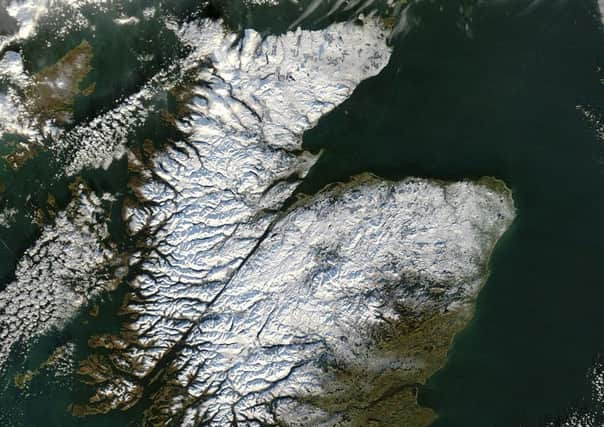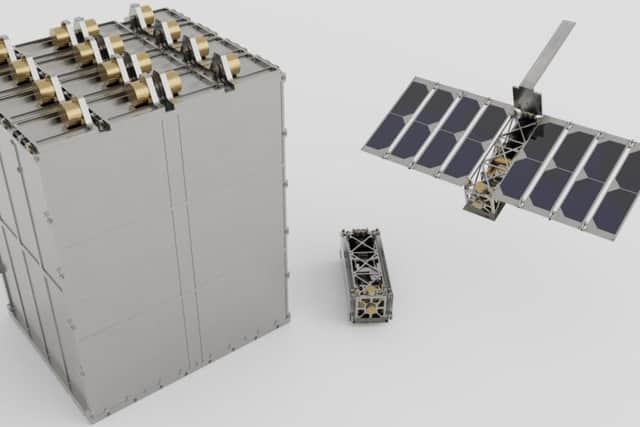Rocket will launch Glasgow-built satellite in Scottish space first


Glasgow-based Alba Orbital has teamed up with American launch firm Vector to send its Unicorn 2-a orbiter into space, with lift-off expected from Alaska later in the year.
Alba, like other space firms in Scotland, specialises in small probes, with those weighing under 10kg known as nanosatellites.
Advertisement
Hide AdAdvertisement
Hide AdThe company takes advantage of CubeSat technology – a standardised, cheap nanosatellite – which offers start-ups a way into the highly-technical marketplace.


The first CubeSat was launched more than 20 years ago. Since then, more than 70 produced in Scotland have been launched while ‘piggybacking’ on other launch vehicles, such as the giant Russian Soyuz rocket.
Alba has made a name for itself by using CubeSat technology known as PocketQube – with satellites measuring just 5cm cubed.
When the Unicorn 2-a PocketQube takes off from a launch site in Alaska it will be on a Vector-R rocket dedicated to the task, meaning the Scottish space sector has passed another milestone.
Data collected by the Unicorn 2-a could be used to estimate populations or monitor infrastructure.
“At Alba Orbital, we aim to provide our customers with the lowest possible turnkey access to space, and offering dedicated, affordable PocketQube satellites is a significant step in the right direction,” said Tom Walkinshaw, the Gorbals-based firm’s founder and CEO.
“Working alongside Vector is a natural fit, providing both organisations with the ability to deliver on our customers’ needs, and move closer to ubiquitous access to space.”
Unicorn-2 will allow payloads with more demanding requirements to fly on a PocketQube for the very first time, potentially helping to save satellite operators more than 50 per cent on hardware and launch.
Advertisement
Hide AdAdvertisement
Hide AdAlba Orbital was founded in 2013 and employs 11 people, initially relying on crowdfunding for investment. It has since won awards from Scottish Enterprise and the European Space Agency.
Jim Cantrell, CEO and co-founder of Vector, said that launches continue to be one of the biggest challenges for its customers.
He said: “Vector’s dedicated launch services provide them with the ability to lower both risk and the cost associated with it.
“The PocketQube movement in the satellite industry is a perfect example of how entrepreneurs are coming together to remove as many barriers as possible for those looking to get to space, which aligns perfectly with Vector’s mission.
“We are excited to have Alba Orbital on board as our first orbital customer and excited to be launching the world’s first PocketQube exclusive launch.”
Scotland’s space sector made headlines in January last year when it was revealed that Glasgow builds more satellites than any other European city. Clyde Space – Scotland’s first micro satellite company – and others help support more than 7,000 jobs north of the border in an industry that is worth around £130 million to the Scottish economy.
The company guaranteed its place at the forefront of developments following the successful launch in 2014 of UKube-1, the first satellite to be fully assembled in Scotland.
Leading the manufacturing charge is American firm Spire, which was founded in San Francisco in 2012 but chose to open its European base in Glasgow.
